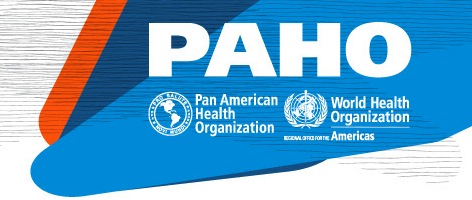PAHO Director calls for more women in leadership of the fight against COVID-19
| “We need women not only on the frontlines but also in leadership.” |

| Washington, D.C., March 8, 2021 (PAHO) Marking International Women’s Day, Director of the Pan American Health Organization (PAHO) Carissa F. Etienne today said that women are “on the frontlines” of the fight against COVID-19 but underrepresented in global and national health leadership. She called for building leadership with the “full involvement of women” during and after the pandemic. “Women make up the great majority of health care workers,” Dr. Etienne said during a virtual International Women’s Day conference hosted by PAHO. “They head households and are the main providers for many of these households – much of this is unpaid work and in the informal labor workforce. Indeed, women are at the very heart of the response, yet women remain disproportionately underrepresented in national and global health leadership, whether in health institutions or other policy-making bodies.” She added, “Never has health leadership occupied the global stage with such urgency and never has the need been greater for that leadership to be inclusive and representative of all those affected in very distinct ways, including, of course, women.” The Monday conference included Alejandra Mora Mora, Executive Secretary of the OAS Inter-American Commission on Women (CIM), Julio Frenk, President of Miami University and former Minister of Health for Mexico, and Claudia Lopez Hernandez, Mayor of Bogota, Columbia. Mora pointed out that women’s leadership must be recognized. “The first thing that must be done in terms of leadership is make our leadership visible,” she said. “We are ready to make decisions. So when we are not being recognized, we must question and denounce.” She called on governments to recognize that the pandemic has affected women differently, in part by increasing the domestic violence against them as they spend more time at home with their partners. “We need to call on states to put on the lens of gender,” she said. “We cannot continue believing that we are all equal – that differentiated impacts do not exist.” Panelists also pointed out that women have shouldered the burden of trying to hold down jobs while caring for children at home because of public health measures. The “care economy,” in which women take care of children and other relatives at home for no pay, should be compensated, they asserted. In her remarks, Dr. Etienne drew attention to the breadth of the contributions that female health workers have made as COVID-19 has swept across the Americas, infecting nearly 50 million people and killing more than one million. She pointed out that the Inter-American task force on Women’s Leadership reports that in Latin America and the Caribbean, nine out of ten nurses are women while only 25 percent of executive positions in hospitals are held by women. Across the Americas, one million health workers have been infected by COVID-19. Four thousand have died, and two out of three of them are women. “The pandemic is far from over, and we need women not only on the frontlines but in leadership,” Dr. Etienne said, asserting that rebuilding after COVID-19 provides a rare opportunity to “build more just societies” with women in leadership at every level. “We urge countries to develop policies not for women but by women,” she said. “It is estimated that only 1 percent of global leaders are women and that only 14 percent of Parliamentarians are women across the world. I am sure we can do better than that. This is another opportunity for a paradigm shift to the holistic, sustainable development which we yearn for. Sustainable development is not possible if women are excluded from leadership. |





